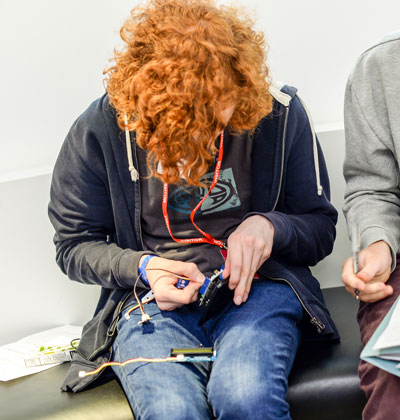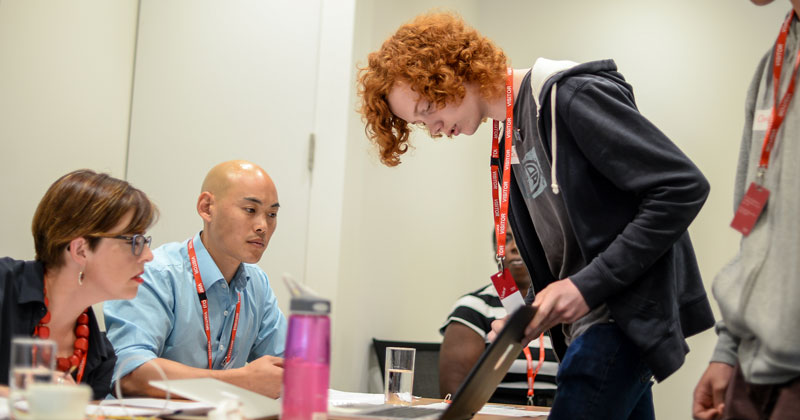Pupils from a special school in Hampshire have won £10,000 for their ICT department after creating a prototype badge that helps people on the autistic spectrum to communicate.
The team of three pupils from Southlands School in Lymington, a specialist Asperger’s and complex needs independent school, came up with the idea for the badge to help their peers communicate more effectively.
When worn on the wrist, the badge changes colour to reflect the emotions of its wearer, using sensors that measure stress, heart rate and speech and tone, and through a display screen, flags up the presence of stress and anxiety.

The idea won the three pupils the £10,000 prize in the 2017 Longitude Explorer competition run by innovation charity Nesta, which tasks secondary school pupils with tackling a health issue by using the Internet of Things.
Their winnings will go to the school to spend on improving their ICT, as well as paying for new equipment across other subjects.
More than 60 teams from across the UK entered the competition with the 10 finalists working closely with mentors from IBM and digital innovation business Digital Catapult to build their prototypes.
Ideas ranged from devices that tackle air pollution, improve mental health and work to reduce childhood obesity.
Fourteen-year-old James Callan, a member of the winning team, said: “People with Asperger’s have difficulty communicating their emotions to others around them. They find it hard to recognise how they are feeling and why they are feeling a certain way.
“Our device can allow solutions to be put in place to enable them to manage this on a daily basis. We learnt a lot about the whole process of creating a tech product, from designing and selling to marketing.”
The group are now looking at developing their invention further around their studies using the skills they developed during the competition.
Guy Strath, a teacher at Southlands School added: “The competition was a great opportunity for students to stretch themselves outside of the standard classroom environment. It helped them to develop coping mechanisms and an awareness that sometimes things go wrong, but you can use those experiences to help you innovate.”



Your thoughts